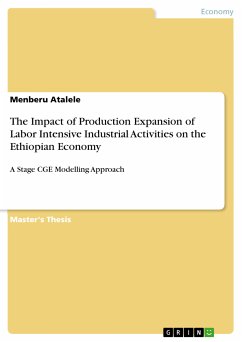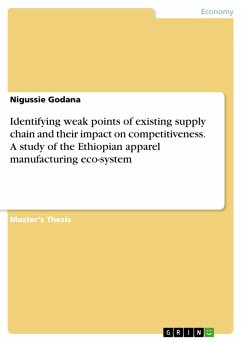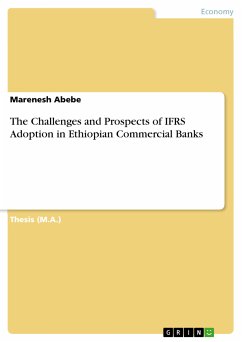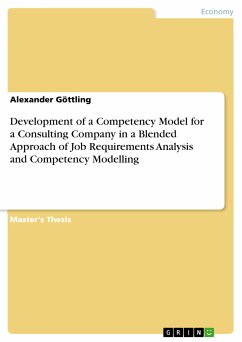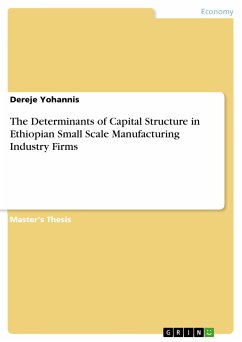Master's Thesis from the year 2017 in the subject Business economics - Supply, Production, Logistics, , language: English, abstract: Ethiopia's industrial activity has been characterized by meager growth for the last epochs. But recently the Ethiopian government endorsed Growth and Transformation Plan (GTP) which gives prime attention to selected industries. This study examines the likely effect of productivity expansion of labor intensive industrial activities on the macro economy, government priority industries, factor and household income and welfare of households. The sectors were selected from the Ethiopian 2009/10 SAM based on their production characteristics. The selected labor intensive sectors include dairy, grain milling, milling service, sugar refining, other food process, beverage, textile, leather product and wood products. In order to investigate the impact of a 10% increase in the technical coefficients of these labor intensive industrial activities, the study used the static stage computable general equilibrium (CGE) model. The recently updated 2009/10 Ethiopian SAM was used to calibrate important parameters of the CGE models. The 2009/10 Ethiopian SAM revealed that 45.22% and 52.13% of rural and urban households generate their income from labor. The production expansion via an increase in their technical coefficient of the sectors derived significant change on macro variables such as real GDP, government consumption demand, investment demand, household consumption, export and import of goods and services. The GDP of the economy has been increased by 3.41%. The findings also suggest that production and export increase in government prioritized industrial products largely .For instance, the production of the textile and leather sectors increased by 26.08% and 41.03%,respectively.Increasing the production of labor intensive industrial activities showed significant decline of import of priority industrial goods. It also resulted in welfare gain to all rural and urban households. The study further extends its recommendation for Ethiopia to develop a strong industrial policy aimed towards promoting labor intensive industrial activities.
Dieser Download kann aus rechtlichen Gründen nur mit Rechnungsadresse in A, B, BG, CY, CZ, D, DK, EW, E, FIN, F, GR, HR, H, IRL, I, LT, L, LR, M, NL, PL, P, R, S, SLO, SK ausgeliefert werden.

